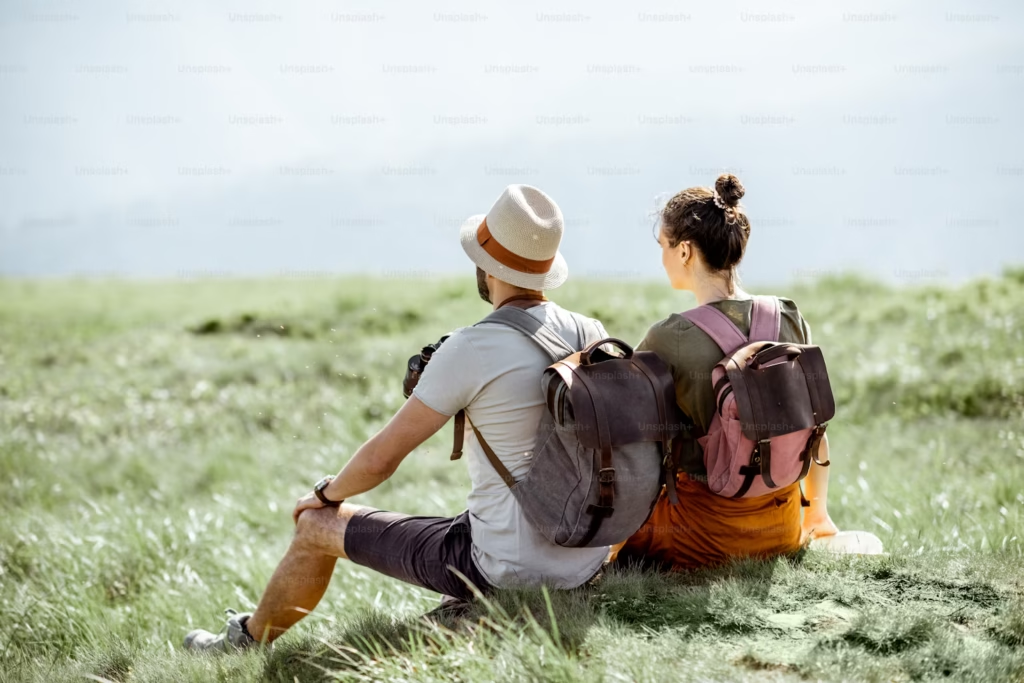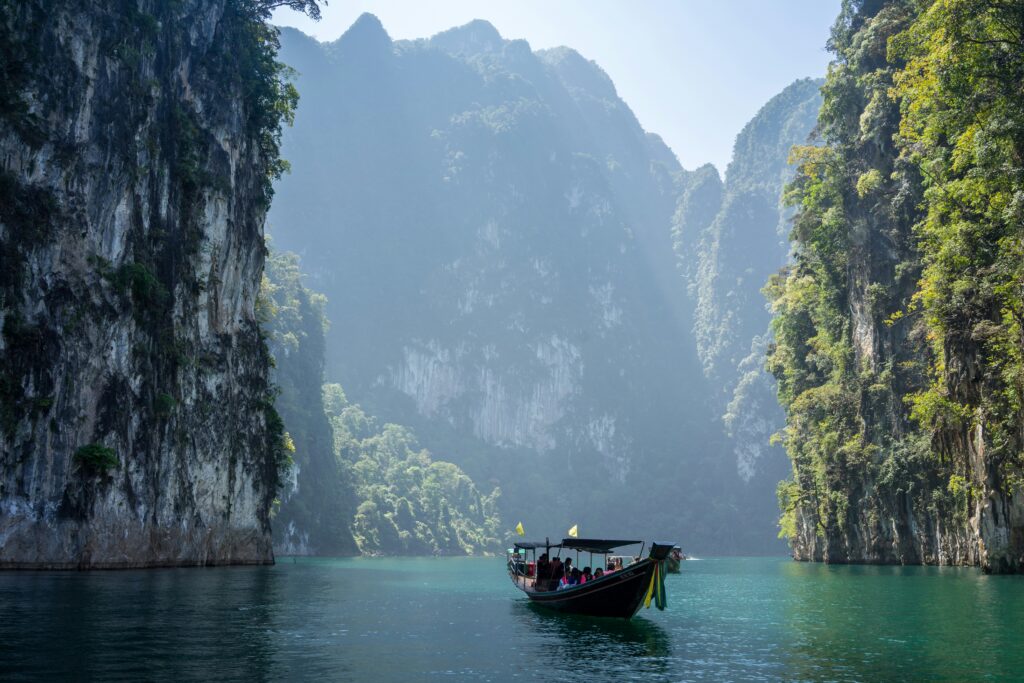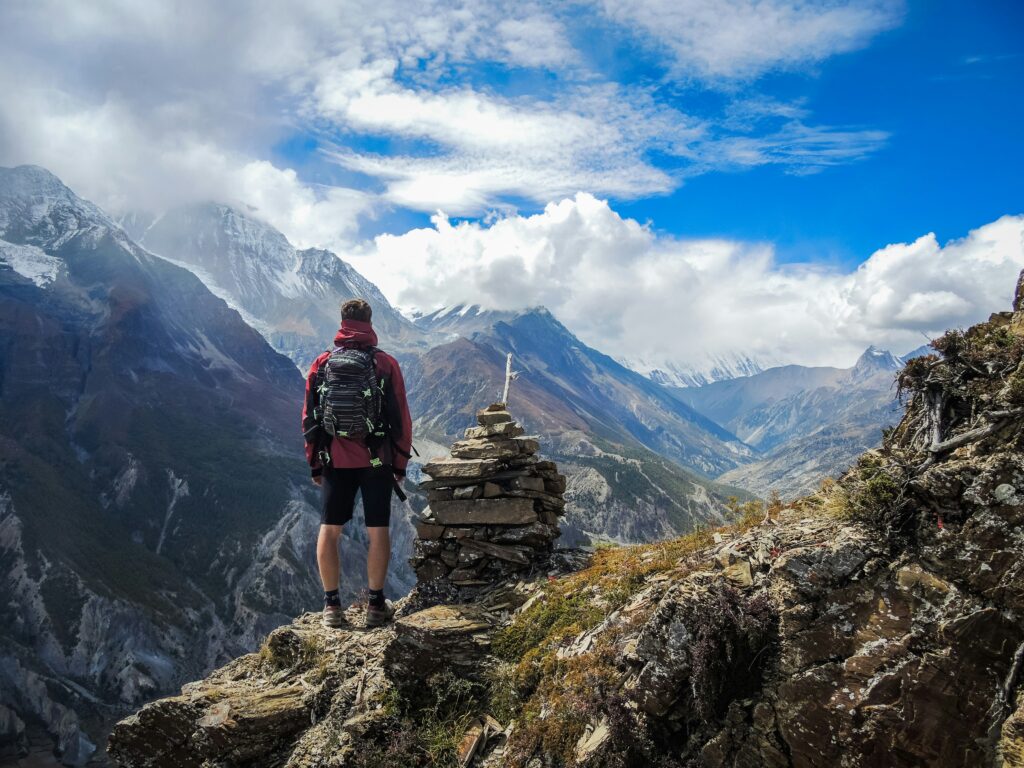
🌍 1. Broader Perspective
- Exposure to new cultures helps you understand how diverse the world is. You start to question your assumptions and become more open-minded.
- It challenges your worldview and builds empathy for others with different values, lifestyles, or struggles.
🧠 2. Mental Growth
- Traveling often places you in unfamiliar situations, which builds problem-solving skills, resilience, and confidence.
- It pushes you out of your comfort zone, helping you grow mentally and emotionally.
🧳 3. Appreciation for Life
- Seeing how others live—sometimes with less—can make you grateful for your own circumstances.
- The beauty of nature or history can inspire awe and a renewed sense of wonder.
👥 4. Stronger Relationships
- Traveling with others can strengthen bonds through shared experiences and challenges.
- Solo travel helps you connect with new people, sometimes forming friendships that last a lifetime.
💼 5. Career and Creativity Boost
- New experiences can spark creativity and make you a more interesting, innovative thinker.
- If you’re in a global industry, international experience can be a strong asset professionally.
🧘 6. Better Mental Health
- A break from routine can reduce stress, improve mood, and restore mental clarity.
- Nature travel, especially, has been shown to reduce anxiety and improve focus.
🕰️ 7. Changed Priorities
- You may realize you don’t need as many material things and begin to value experiences over possessions.
- You might discover a new passion or even re-evaluate your life goals and direction.

Travel can have profound and multifaceted impacts on your life. Below are some key areas where travel often brings change, with practical insights and tips to make the most of these benefits.
1. Personal Growth and Self-Confidence
- Stepping out of comfort zones: Navigating unfamiliar places challenges you to solve problems independently (e.g., finding your way in a new city, handling unexpected delays). Overcoming these hurdles builds resilience and confidence.
- Self-awareness: Time away from routine allows reflection on your values, goals, and habits. You may discover interests or passions (e.g., photography, hiking, local cuisine) that reshape how you spend your free time even after returning.
- Adaptability: Adjusting to different environments—whether coping with language barriers or adapting to new time zones—sharpens your flexibility in everyday life.
2. Expanded Worldview and Cultural Understanding
- Exposure to diversity: Experiencing different cultures firsthand (social norms, traditions, cuisines, languages) broadens empathy and reduces stereotypes. You begin to appreciate that there are many valid ways of living and thinking.
- Global perspective: Seeing how people elsewhere address similar challenges (education, environment, work-life balance) can inspire fresh approaches at home.
- Language skills: Immersion often accelerates language learning and communication skills, even if it’s just picking up basic phrases. This can boost cognitive flexibility and open further opportunities.
3. Enhanced Creativity and Inspiration
- New stimuli: Unfamiliar sights, sounds, and experiences can spark ideas—whether for art, writing, business projects, or problem-solving in your current job.
- Breaking routines: A change of scenery can interrupt creative blocks. Journaling or sketching while traveling helps capture these insights for later.
- Cross-disciplinary connections: Observing how different cultures integrate art, architecture, or technology may lead you to combine elements in novel ways.
4. Improved Mental Well-Being
- Stress relief and mindfulness: A break from daily pressures can reduce burnout. Engaging fully in new experiences encourages present-moment awareness.
- Physical activity: Many trips involve walking, hiking, swimming, or cycling, which boost endorphins and overall health.
- Gratitude and perspective: Witnessing different living conditions or natural wonders often fosters gratitude for what you have, reshaping priorities and promoting contentment.
5. Social Connections and Networking
- New friendships: Traveling puts you in contact with fellow travelers and locals. These connections can become lasting friendships or professional contacts.
- Interpersonal skills: Communicating across cultures refines listening skills, patience, and nonverbal understanding—valuable in both personal and work relationships.
- Community engagement: Volunteering or homestays deepen connections and often teach you about community-driven solutions you can support or emulate later.
6. Career and Professional Development
- Adaptability in the workplace: Demonstrated experience in navigating complexity abroad signals to employers that you handle uncertainty well.
- Global opportunities: Understanding different markets or practices can open doors for international projects, collaborations, or roles.
- Soft skills: Time management, budgeting, negotiation (e.g., bargaining at markets), and cross-cultural communication are all sharpened while traveling.
7. Lifelong Learning and Perspective on Home
- Appreciation and reflection: Returning home, you may notice aspects of your own culture or routine that you’d like to change—diet, social habits, daily schedule, or even career path.
- Hobbies and interests: You might adopt new practices (e.g., cooking foreign recipes, new fitness routines, languages) that enrich your daily life.
- Travel mindset: Planning for the next trip often involves research skills, goal-setting, and budgeting, which can translate into better planning in other areas.
8. Practical Tips to Maximize the Benefits
- Set intentions: Before traveling, reflect on what you hope to gain (e.g., relaxation, cultural immersion, adventure). This guides how you allocate time.
- Balance planning and spontaneity: Have a rough itinerary but leave room for unplanned discoveries; serendipitous moments often yield the strongest insights.
- Keep a travel journal or blog: Document experiences, lessons learned, and feelings; reviewing these later reinforces growth.
- Engage with locals: Use respectful curiosity—ask questions about daily life, customs, challenges. Avoid treating experiences as mere photo opportunities.
- Learn basic language phrases: Even simple greetings can foster goodwill and deeper interactions.
- Reflect after return: Spend time evaluating how travel experiences might inform changes at home—new habits, career adjustments, or personal goals.
9. Potential Challenges and How to Navigate Them
- Culture shock or homesickness: Acknowledge these feelings as normal. Stay connected with support at home and give yourself time to adjust.
- Budget constraints: Travel doesn’t have to be expensive; consider off-season trips, budget accommodations, house-sitting, or volunteering.
- Safety and health: Research necessary vaccinations, local laws, and customs. Have contingency plans (e.g., travel insurance, digital copies of documents).
- Sustainability: Travel responsibly—choose eco-friendly options, respect wildlife and local communities, and be mindful of your environmental footprint.
10. Long-Term Impact
- Lasting mindset shift: Many travelers find themselves more open-minded, patient, and curious in everyday life.
- Continuous self-improvement: The skills and confidence gained often encourage further challenges—learning new languages, undertaking ambitious projects, or embracing uncertainty.
- Storytelling and legacy: Experiences become stories you share with others, inspiring friends, family, or colleagues to broaden their horizons too.

Places We Go to During Travel to Relax
In today’s fast-paced world, where stress has become a constant companion and people are often trapped in tight schedules, travel offers a much-needed escape. One of the most significant purposes of travel is relaxation. People seek comfort, peace, and rejuvenation to balance the mental and physical toll of daily life. The destination chosen can vary based on individual preferences, cultural influences, and personal definitions of relaxation. However, some places are universally popular for their calming and refreshing atmospheres. These include beaches, hill stations, countryside retreats, wellness resorts, forest lodges, lakesides, and cultural heritage towns.
1. Beaches: The Classic Escape
Beaches are perhaps the most iconic locations people associate with relaxation. The sound of the waves crashing against the shore, the golden sand, the cool breeze, and the warmth of the sun create an environment that naturally soothes the senses. Whether it’s Goa in India, Bali in Indonesia, the Maldives, or the Caribbean Islands, beach destinations are a favorite among travelers looking to unwind.
The laid-back lifestyle of coastal towns allows people to disconnect from technology, slow down, and reconnect with nature. Activities such as sunbathing, swimming, reading a book by the sea, or simply taking long walks along the shore help reduce stress and bring a sense of peace.
2. Hill Stations: Cool Weather and Calm Views
Hill stations are another popular travel destination for relaxation, especially in tropical countries. In India, destinations like Shimla, Manali, Ooty, Darjeeling, and Munnar attract millions of tourists each year seeking a break from the heat and bustle of city life.
The cool climate, scenic views of mountains, tea plantations, and pine forests make hill stations ideal for rest and rejuvenation. The slow pace of life, minimal noise pollution, and fresh air contribute to a healthy environment where one can relax both mentally and physically.
3. Countryside Retreats: Life at a Slower Pace
Many travelers prefer to visit the countryside to experience peace and simplicity. Far from the chaotic cities, rural areas offer a slower, more grounded way of life. Staying in a farmhouse or a village homestay can be incredibly relaxing. Activities such as walking through fields, participating in farm work, cooking local meals, or simply sitting under a tree are surprisingly therapeutic.
Countryside travel also allows people to disconnect from technology and engage more deeply with nature and community, which is often lost in urban life.
4. Wellness and Spa Resorts: Healing for Body and Mind
For those who seek structured relaxation, wellness resorts are a perfect choice. These resorts are often located in serene natural environments like forests, hills, or near lakes, and focus on rejuvenating both the body and mind.
Yoga retreats in Rishikesh, Ayurvedic resorts in Kerala, and spa hotels in Thailand are some examples. These places offer meditation, massages, detox programs, and diet plans, helping visitors heal from the inside out. Travelers leave these places not only relaxed but often with a new perspective on life and health.
5. Forest Lodges and Nature Camps: Immersion in the Wild
For nature lovers, nothing is more relaxing than staying in a forest lodge or a tented camp surrounded by trees, rivers, and wildlife. Places like Jim Corbett National Park in India, the Amazon rainforest in South America, or national parks in Africa offer travelers the chance to unwind in the lap of nature.
Such experiences allow one to disconnect from digital distractions and reconnect with the Earth. Listening to birdsong at dawn, watching animals in their natural habitat, and stargazing at night contribute to a deep sense of calm and wonder.
6. Lakeside Escapes: Calm Waters and Quiet Moments
Lakeside destinations offer a different kind of serenity. The stillness of a lake, often surrounded by mountains or forests, creates a tranquil atmosphere perfect for rest. Boating, fishing, or simply watching the reflection of clouds on the water can be deeply meditative.
Destinations like Nainital, Udaipur, Lake Tahoe, or Lake Bled attract travelers with their picturesque beauty and peaceful surroundings. Small hotels or cottages near the lake offer cozy accommodations where people can relax without interruption.
7. Desert Retreats: Silence and Solitude
While deserts may seem harsh, they are among the most peaceful places on Earth. The vast, empty landscapes and the unique beauty of sand dunes have a spiritual effect on many travelers. Places like Jaisalmer in Rajasthan or the Sahara in Morocco offer desert camps where one can enjoy silence, sunsets, and star-filled skies.
Camel rides, folk music, and traditional cuisine add to the charm. The sheer quiet and simplicity of the desert environment make it ideal for self-reflection and rest.
8. Historical and Cultural Towns: A Relaxing Journey Through Time
Some travelers find relaxation not just in nature, but in history and culture. Visiting old towns with rich heritage, beautiful architecture, and slow-moving life can be a soothing experience. Cities like Udaipur, Hampi, Kyoto, and Florence allow travelers to explore art, history, and tradition at a leisurely pace.
Walking through cobbled streets, sitting at a café, or visiting old temples and forts gives a sense of timelessness and calm that modern cities often lack. It is a different kind of relaxation—one that nurtures the soul through beauty and meaning.
9. Island Getaways: Total Detachment
Islands often offer the best of both worlds: beaches and seclusion. Islands like the Andamans, Seychelles, Santorini, or Bora Bora are ideal for those who want to truly detach from the world. Limited connectivity, fewer people, and stunning natural beauty create a sanctuary for travelers.
Island resorts are often built with comfort in mind, offering luxurious yet peaceful experiences. Whether it’s lounging in a hammock, enjoying a spa with ocean views, or exploring coral reefs, island life slows you down and helps you recharge.
Conclusion
Relaxation through travel means different things to different people, but the common thread is the desire to escape daily pressures and restore inner balance. Whether it’s lying on a beach, meditating in the hills, walking in a village, or watching stars in the desert, travel gives us the space to breathe, reflect, and feel alive.
These destinations—beaches, mountains, forests, lakes, villages, and islands—remind us that peace is still possible in a busy world. In seeking out these places, we are not just taking a break; we are healing ourselves, reconnecting with nature, and rediscovering what truly matters.
Overall, travel can catalyze growth in self-confidence, cultural empathy, creativity, mental health, relationships, and professional skills. By approaching travel intentionally—balancing planning with openness—you maximize these benefits and carry lessons back into daily life. If you have a particular type of travel in mind (e.g., solo backpacking, volunteer trips, luxury travel) or specific goals (e.g., language learning, digital nomad lifestyle), let me know and I can tailor suggestions further.
